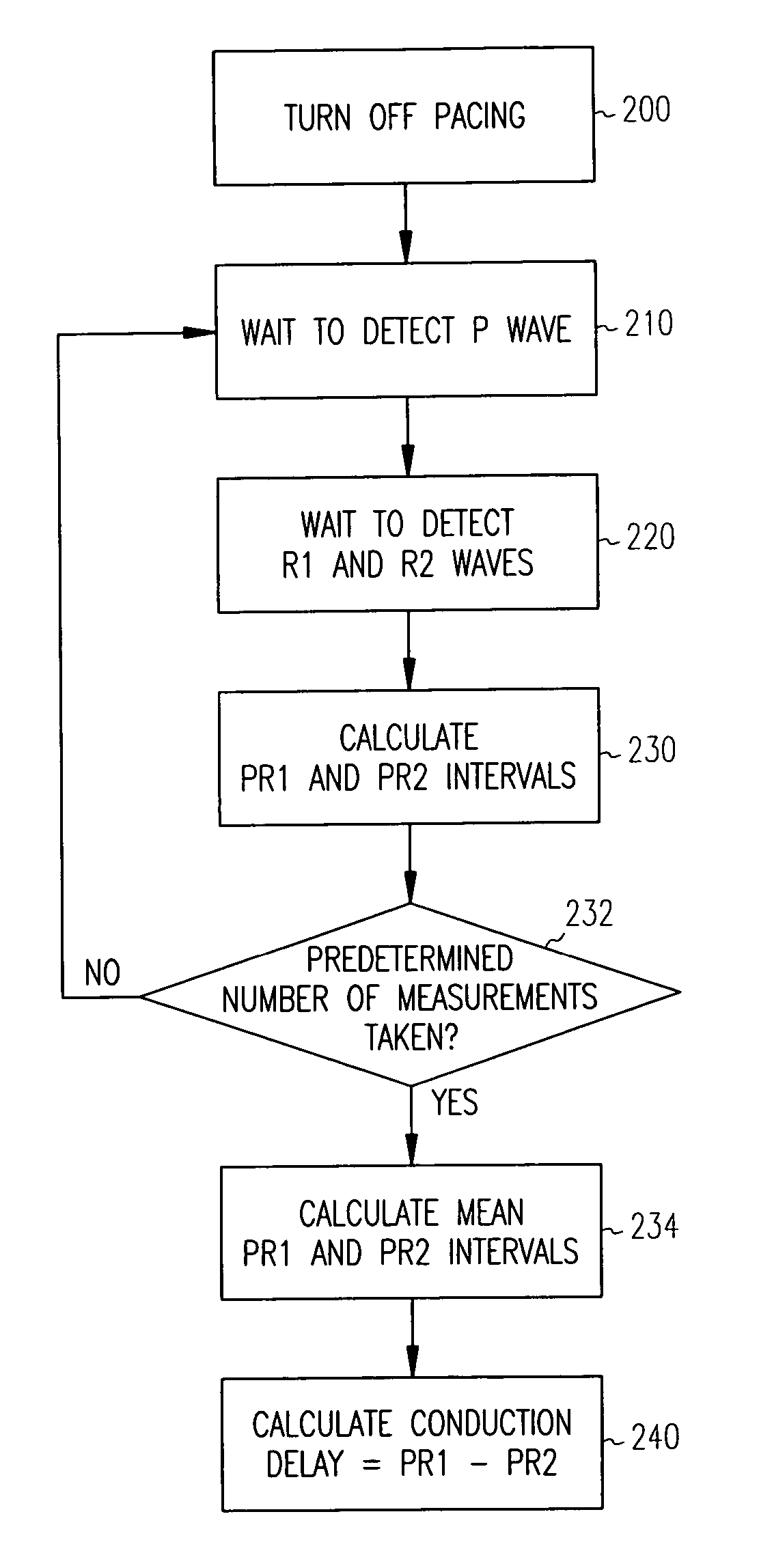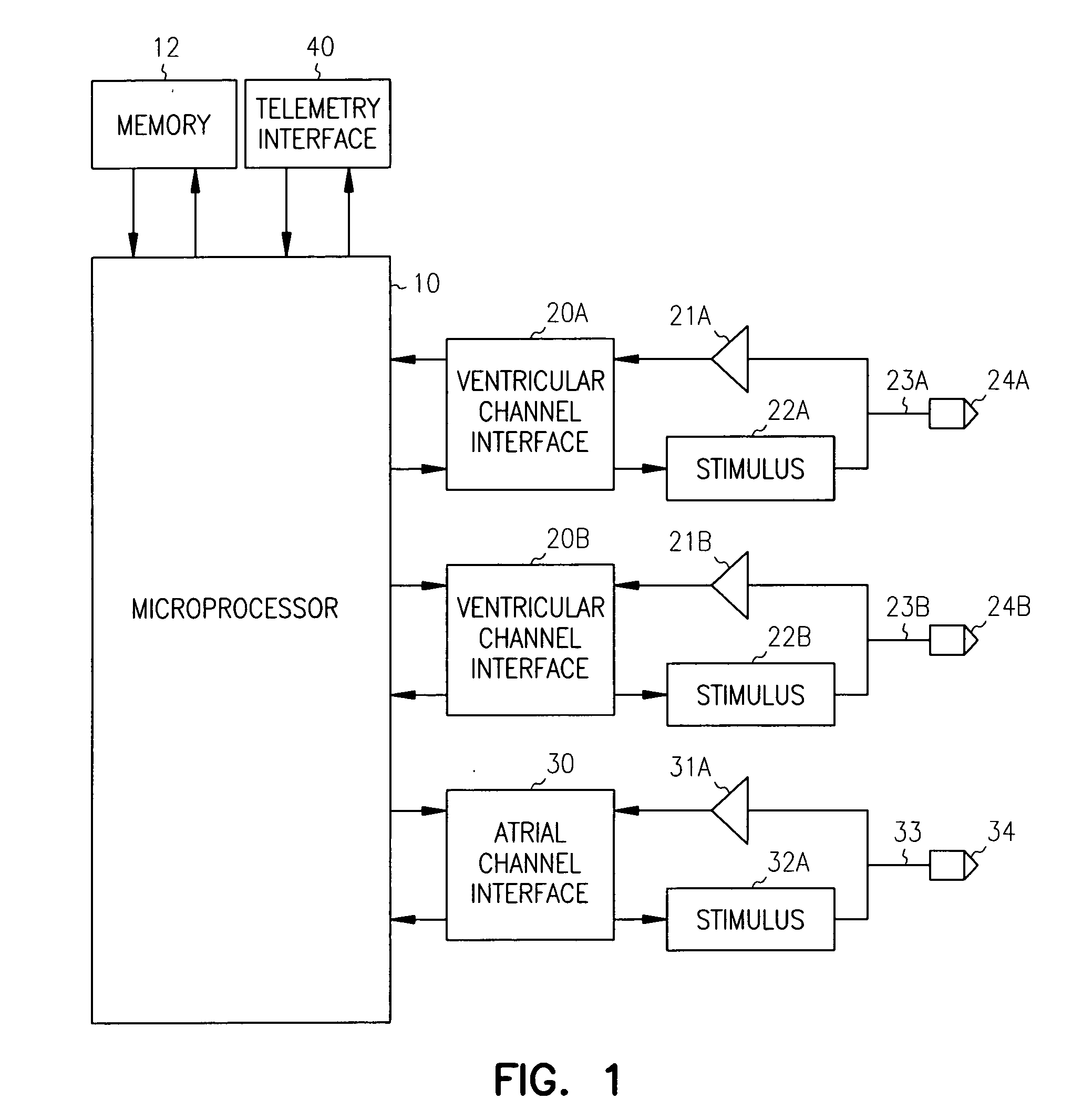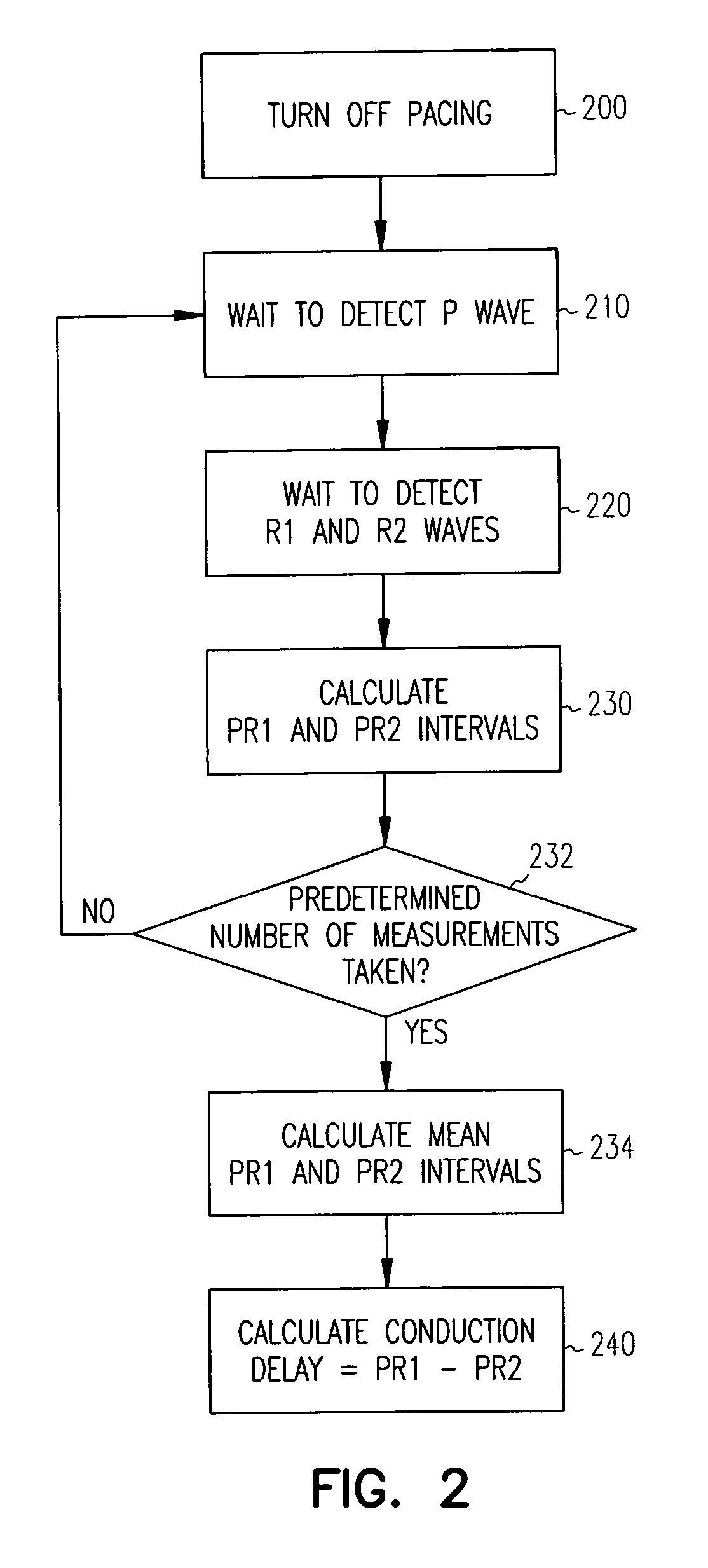Ventricular conduction delay trending system and method
a trending system and ventricular conduction delay technology, applied in the field of ventricular conduction delay trending system and method, can solve the problems of insufficient filling, decreased cardiac output, and pacing can actually worsen cardiac function, and achieve the effect of improving cardiac function and reducing cardiac outpu
- Summary
- Abstract
- Description
- Claims
- Application Information
AI Technical Summary
Benefits of technology
Problems solved by technology
Method used
Image
Examples
Embodiment Construction
[0011] As noted above, cardiac pacing is beneficial to some CHF patients that suffer from conduction defects because excitation from a pacing pulse applied to a ventricle spreads without using the conduction system. Ventricular synchrony may thus be partially restored. The pacing modes most commonly used for treating CHF are DDD, DVI, and VDD. These are the ventricular pacing modes that also preserve atrio-ventricular coordination which is needed in CHF patients since diastolic filling (and hence cardiac output) is decreased without a well-coordinated contraction of the atria and ventricles. If the conduction system of the patient is found to be improving, however, it may be desirable to adjust the pacing therapy so that more advantage is taken of the patient's conduction system. Conversely, if the conduction system is deteriorating, the pacing therapy may be adjusted to, for example, increase the frequency of pacing or pace with a different AV interval.
[0012] In accordance with th...
PUM
 Login to View More
Login to View More Abstract
Description
Claims
Application Information
 Login to View More
Login to View More - R&D
- Intellectual Property
- Life Sciences
- Materials
- Tech Scout
- Unparalleled Data Quality
- Higher Quality Content
- 60% Fewer Hallucinations
Browse by: Latest US Patents, China's latest patents, Technical Efficacy Thesaurus, Application Domain, Technology Topic, Popular Technical Reports.
© 2025 PatSnap. All rights reserved.Legal|Privacy policy|Modern Slavery Act Transparency Statement|Sitemap|About US| Contact US: help@patsnap.com



